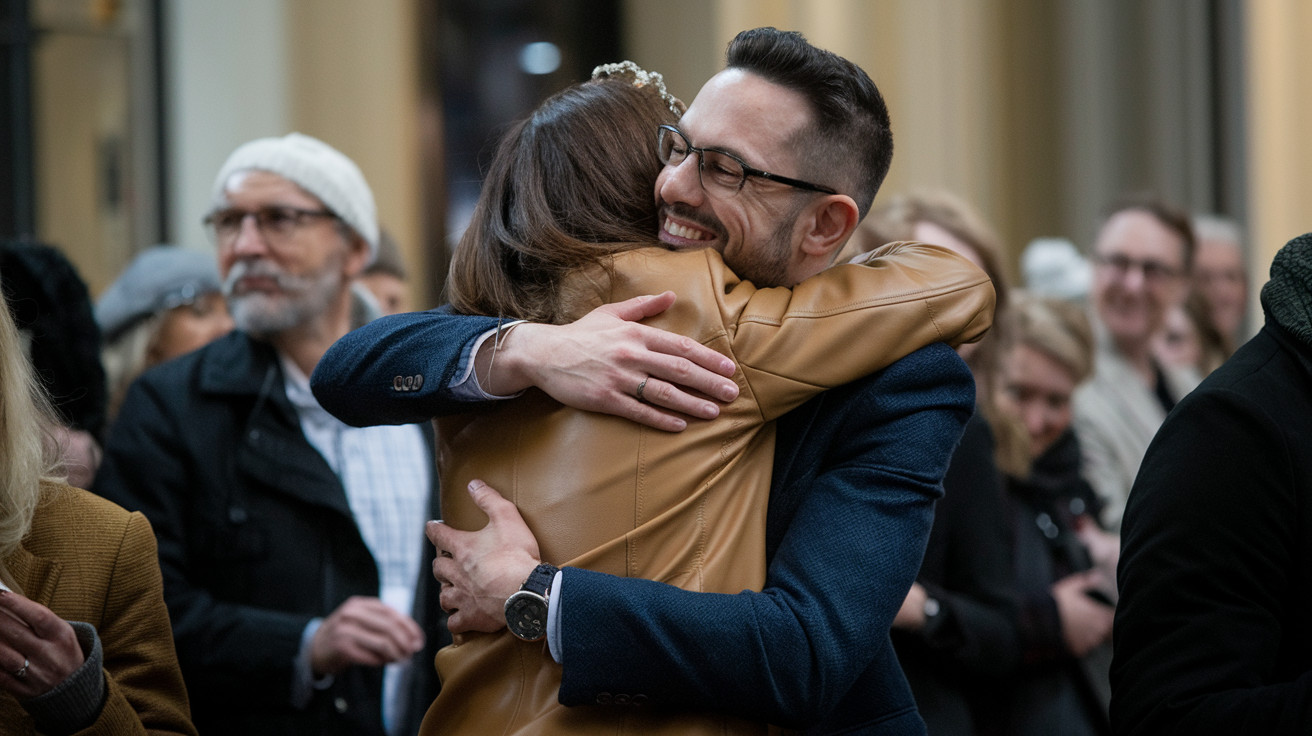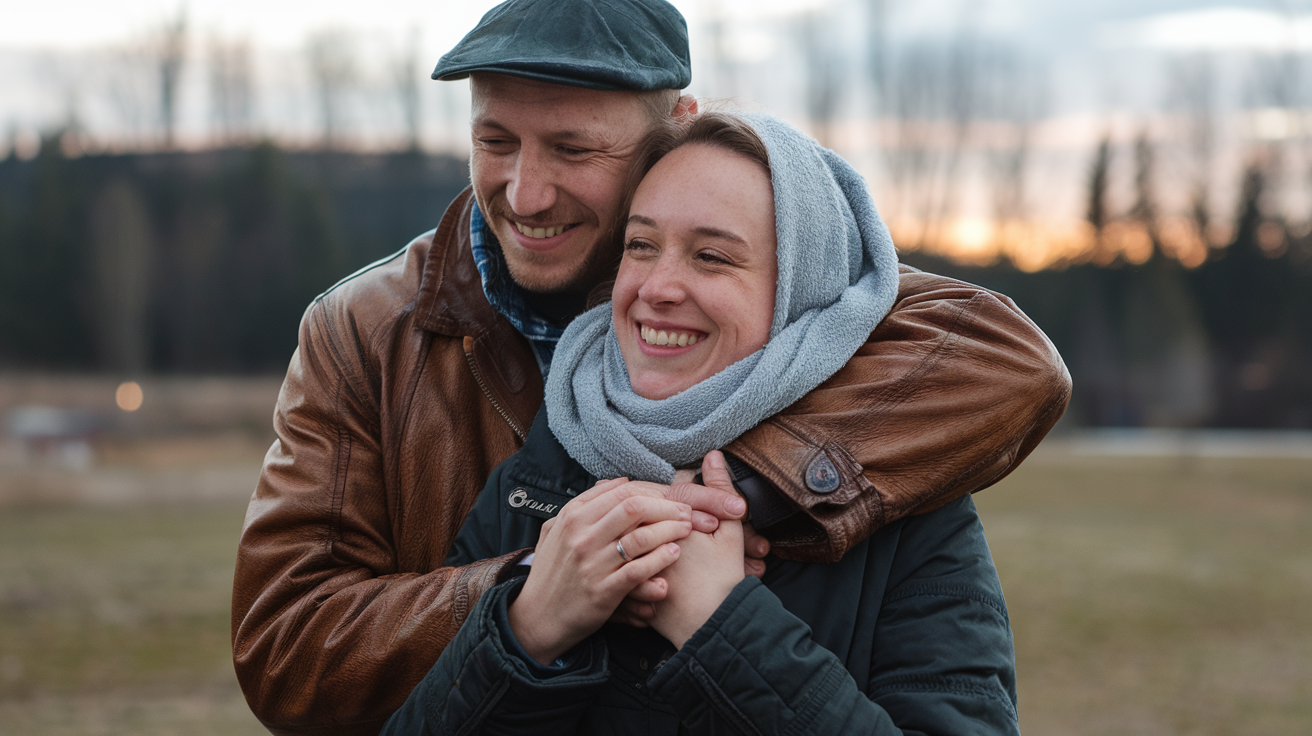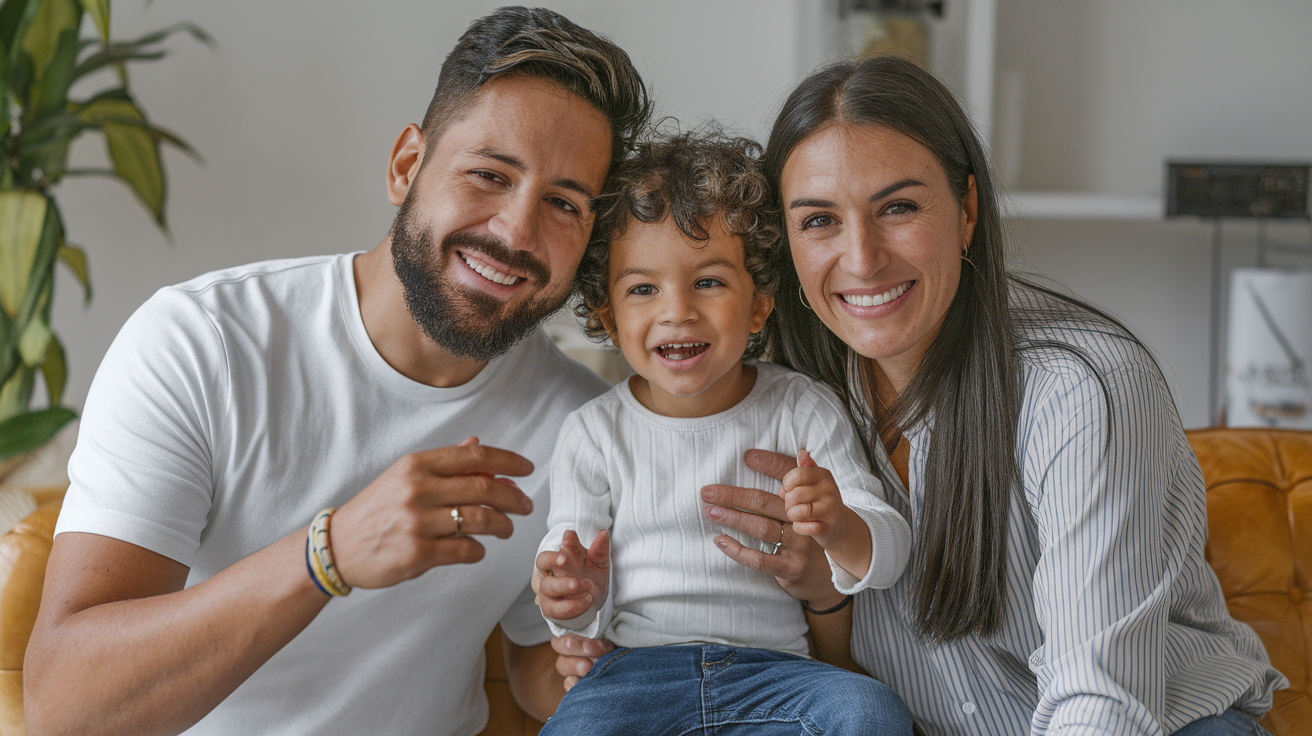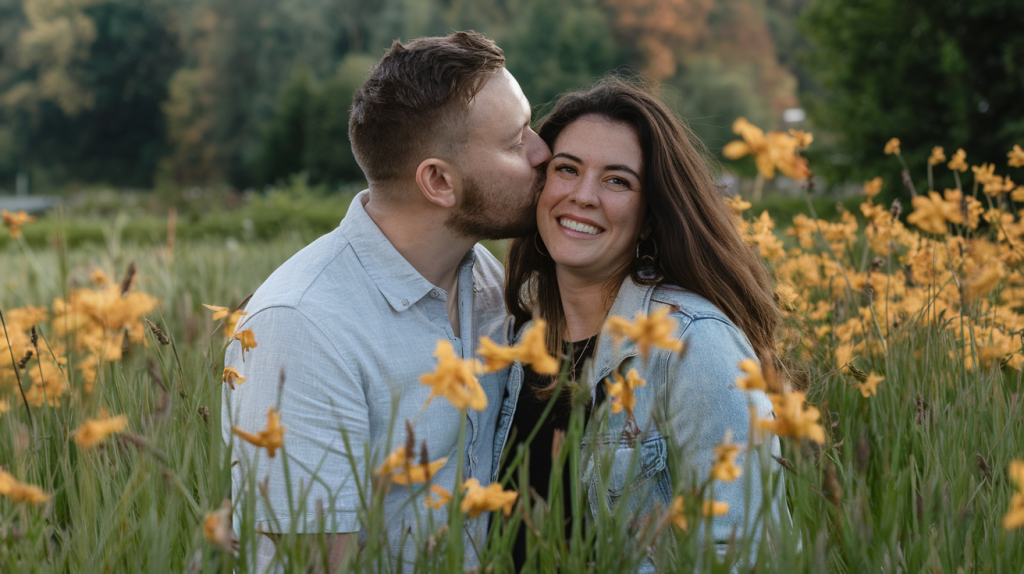Everyone wants to know what love really means. This blog shares honest truths about love not from movies or books but from real relationships.
Sometimes, love is warm and sweet; other times, it tests us. Each connection teaches us something valuable about giving, accepting, and growing with another person.
From understanding yourself better to building trust with someone else, these insights help make relationships stronger.
Whether looking for love in a relationship or healing from heartbreak, these lessons can guide you. They come from real stories and experiences that show what love truly asks of us.
What is the Meaning of Love

Love means something different to each person, yet its core remains simple and pure.
True love shows up in small daily acts. It could be making soup when someone feels sick, listening without judgment after a hard day, or simply being there during tough times.
These simple moments often matter more than grand gestures or fancy words.
Love also means accepting people as they are, not trying to change them into who you want them to be. It’s about growing together while letting each person stay true to themselves.
Healthy love brings out the best in both people. It creates a safe space where both partners can share their hopes, fears, and dreams without worry.
This kind of love helps people become stronger, kinder and more understanding of themselves and others.
Lessons on Love

Here are some helpful lessons on love. These love lessons help us appreciate life and the people around us better:
1. Self-Acceptance is Key
True love starts with accepting yourself first. When you know your worth, you won’t settle for less. Self-acceptance builds the base for good relationships.
It means understanding both your strengths and flaws without harsh judgment. People who accept themselves choose better partners and set healthier standards in relationships.
2. Actions Over Words
Actions speak louder than words. Real love shows in daily actions, not just sweet talk.
It appears in small moments like making soup when your partner feels sick, remembering their favorite snack, or helping with tasks without being asked.
3. Setting Healthy Boundaries
Setting boundaries shows respect. Good boundaries help love grow stronger. They work like a fence around a garden, keeping good things in and harmful things out.
Clear limits help both people feel safe and respected. When both partners honor each other’s boundaries, trust grows naturally.
4. Honesty and Open Communication
Being honest about feelings. Open talks prevent small issues from growing into big problems.
Sharing feelings early helps partners understand each other better. When couples talk openly about needs and concerns, they build trust.
5. Acceptance, Not Change
Love doesn’t try to change someone; it accepts people as they are right now. Trying to change a partner often leads to hurt feelings and failed relationships.
Good matches happen when people appreciate each other’s real selves, not an imagined perfect version. Change only works when someone chooses it for themselves.
6. Timing Matters in Relationships
Even perfect matches need the right timing to work. Life situations, personal readiness, and shared goals all play important roles.
Sometimes, great potential partners meet when one or both aren’t ready for a relationship. Understanding timing helps make better choices about when to start or deepen relationships.
7. Learning from Past Relationships
Past relationships teach valuable lessons. Each relationship adds to our understanding of love. Failed relationships show what doesn’t work and help set better standards.
The pain from past relationships builds wisdom about red flags to watch for. These experiences shape better choices in future relationships and help people understand their needs more clearly.
8. Supporting Each Other’s Growth
Loving someone means supporting their growth. Good love creates space for both people to grow. Supporting a partner’s dreams and goals strengthens the bond between couples.
This includes encouraging new interests, celebrating small wins, and standing by during setbacks. True support means cheering from the sidelines without taking over or controlling their path.
9. Recognizing Red Flags Early
Red flags don’t turn green with time, and the early warning signs usually grow bigger, not smaller. When something feels wrong at the start, paying attention saves the individual from being hurt later.
Common red flags include controlling behavior, lack of respect, or different core values. Hoping these problems will fix themselves often leads to deeper disappointment.
10. Balancing Emotions with Logic
Love needs both hearts and minds. Good relationships balance feelings with smart thinking. While emotions matter, practical issues need attention, too.
This means looking at how well life goals match, if values align, and whether daily habits work together. Making choices with both heart and head leads to stronger relationships.
11. The Power of Taking Breaks
Taking breaks helps clear thoughts. Sometimes, stepping back helps see things more clearly. Short breaks can help both partners think about what they really want.
This doesn’t mean ending the relationship but getting space to understand feelings better. Time apart can actually make bonds stronger when used wisely.
12. Working Together on Solutions
Both people must want to fix problems. One person can’t save a relationship alone. The relationship stays stuck when only one partner tries to make things better.
Real solutions come when people admit problems and work together to fix them. Equal effort from both sides makes positive change possible.
13. The Fragility of Trust
Trust builds slowly but breaks fast. Trust grows like a garden; it needs constant care and time to flourish. Small, consistent actions build trust day by day.
Being reliable in small promises creates faith in bigger ones. But one betrayal can undo months or years of trust-building. Rebuilding broken trust takes much longer than building it the first time.
14. The Wisdom of Forgiveness
Forgiveness doesn’t mean forgetting. Choosing to forgive helps people move forward, but keeping lessons learned stays smart. Healthy forgiveness means letting go of anger while remembering what you learned.
This protects you from repeat hurts while keeping your heart open to love. Good relationships need forgiveness, but they also need wisdom from past experiences.
15. Respecting Different Love Languages
Different love languages need respect. People show and receive love in different ways. Some need words of praise others prefer helpful actions.
Some want physical touch, while others value quality time together. Understanding your partner’s way of feeling loved matters as much as showing love your way. Learning to speak each other’s love language strengthens bonds.
16. Accepting Impermanence in Relationships
Not all relationships last forever. Some relationships come to teach lessons, then end. Accepting this truth helps handle endings better.
Good relationships can end when people grow in different directions. Sometimes, loving someone means letting them go. Short relationships can bring valuable lessons just like long ones.
17. Growth Through Support
Healthy love brings growth for both people. Good relationships help both partners become better versions of themselves.
Each person supports the other’s goals while pursuing their own. They challenge each other to grow but never tear each other down. Progress happens side by side, not at each other’s expense.
18. The Importance of Small Moments
Small moments matter more than big ones. Daily kindness builds stronger bonds than rare grand gestures. Remember their favorite morning drink, listen after their hard day, or send a caring message.
These tiny actions add up to create lasting love. Big romantic moments feel special, but everyday care keeps love alive.
19. Active Listening Builds Strong Connections
Listen more than you speak. Good listening creates deeper understanding. It means putting away phones, making eye contact, and truly hearing what’s said.
Active listening includes noticing tone of voice and body language. When partners feel heard, they share more openly. Real listening means trying to understand, not just waiting to respond.
20. Self-Respect and Walking Away
Love yourself enough to walk away from harm. Self-love sets the standard for how others treat you. Staying in harmful situations hurts both people.
Walking away from bad treatment shows self-respect. Good love lifts you up it never tears you down. Setting this standard protects your well-being and shows others how to treat you.
21. Different Needs in Relationships
Everyone has different needs in love. What works for one couple might not work for another. Some need lots of time together others need more space.
Some share everything; others keep some parts private. Understanding your own needs helps find better matches. Respecting these differences prevents trying to force wrong fits.
22. Fighting Fair in Relationships
Fights are normal, but fighting fair matters. All couples disagree sometimes. Good fights focus on fixing problems, not hurting each other.
Fair fighting means no name-calling, staying on topic, and finding solutions together. Taking breaks when emotions run high prevents saying things you’ll regret.
23. The Importance of Space
Give partners space to miss you, and constant presence can feel suffocating. Having separate interests and time apart keeps relationships fresh.
Missing each other creates space for appreciation to grow. Good relationships balance togetherness with healthy independence.
24. Letting Go of Scorekeeping
Love doesn’t keep score. Healthy relationships don’t track wins and losses. Keeping count of past mistakes hurts current happiness.
Good partners focus on solving problems, not winning arguments. When both give freely without counting, love grows stronger.
25. Happiness Starts Within
Happiness comes from the inside. Good relationships add to your joy but shouldn’t create it. Being happy alone helps build better relationships.
No partner can fix internal unhappiness. Strong relationships start with two whole people choosing to share life.
26. Trusting Your Instincts
Trust your gut feelings. Inner wisdom often notices problems before the mind does. That uneasy feeling usually means something needs attention.
Physical reactions like tension or stress around someone matter. Your body often knows the truth before you’re ready to admit it.
27. Getting to Know Someone Deeply
Take time to know someone well. Quickstarts often lead to quick endings. Getting to know someone’s true self takes time.
People show their best side early real personalities emerge slowly. Taking time helps spot both good and bad patterns early.
28. Maintaining Personal Space
Keep parts of your life just for you. Having personal space helps love grow better. Keeping some hobbies and friends separate stays healthy.
Good relationships don’t mean giving up your identity. Private time lets you recharge and bring fresh energy to the relationship.
29. Setting Common Life Goals
Share goals and dreams early. Talking about future plans helps see if paths match. Different life goals can cause problems later.
Being clear about what you want prevents future disappointment. Good matches have similar ideas about important life choices.
30. Effort and Balance in Relationships
Put in equal effort. Both partners need to work on the relationship. One person carrying all the weight leads to burnout.
Equal effort means both people plan dates, solve problems, and show care. Balance in giving and taking keeps relationships fair.
31. Understanding Mixed Signals
Mixed signals mean “no.” Clear love doesn’t leave you confused. If someone wants to be with you, they make it known.
Confusing messages often hide an unwillingness to commit. Good relationships feel steady and sure, not like a guessing game.
32. Maintaining Your Identity
Stay friends with yourself first. Keeping your own identity matters in relationships. Don’t lose your interests or values for love.
Good partners encourage you to keep being yourself. Strong relationships include personal growth and self-care.
33. Calmness in Love
Good love feels calm, not scary. Healthy relationships bring peace to your life. Constant worry or fear signals problems. Safe love lets you relax and be yourself.
You can breathe easily, speak honestly, and show vulnerability without fear of judgment. Drama and high stress often hide deeper issues that need careful attention and honest conversation.
34. Valuing Outside Friendships
One person can’t meet all your social needs. Friends offer different kinds of support than partners. Having various relationships creates a fuller life.
Good partners support other ways of healthy connections, understanding that diverse social bonds strengthen rather than threaten your primary relationship.
35. Shared Responsibility for Issues
Share responsibility for problems. Both people play a part in relationship issues. Blaming one person doesn’t solve anything.
Looking at both sides leads to better solutions. Taking shared responsibility helps prevent repeat problems.
36. Talking About Money Early
Money talks matter early. Financial values need to match for long-term success. Different spending habits can cause serious conflict.
Open talks about money prevent future stress. Understanding each other’s money views builds trust.
37. Continuing to Date After Commitment
Keep dating even after commitment. Long-term relationships need regular care and attention. Planning special time together keeps love fresh.
Small dates matter as much as big ones. Regular quality time builds stronger bonds over the years.
38. Avoiding Social Media Pitfalls
Social media can hurt love. Online posts often show only perfect moments. Comparing your relationship to others’ highlights brings problems.
Real connections happen in person, not through screens. Good relationships focus on real moments, not online images.
39. Understanding Age Gaps
Age gaps can bring different life views. Big age differences mean different life experiences. Partners might want different things at different times.
Life stages and goals might not match well. Understanding these gaps helps make better choices.
40. Balancing Family Input
Listen to family concerns, but make your own choice. People who know you well might spot issues you miss.
Balance family input with your own judgment. Good families support healthy relationships.
41. Observing Character Through Actions
Look at how they treat others. Actions toward others show true character. Watch how they handle waiters, family, and friends.
Treatment of others predicts future treatment of you. Kind people show kindness in all situations.
42. Pay Attention to How You Feel
Notice how you feel around them. Good relationships make you feel better, not worse. Pay attention to your mood after spending time together.
Feeling drained often signals problems. The right person brings out your best self.
43. Recognizing Patterns in Relationships
People usually show consistent behavior over time. Previous relationship habits tend to return.
Notice how past relationships ended and why. Learning these patterns helps make better future choices.
44. Allowing Space for Growth
Love needs room to grow. Too much control stifles good relationships. Both people need space to change and mature.
Tight rules or watching every move kills trust. Good love balances closeness with freedom.
45. Balancing Work and Relationships
Work stress affects home life. Job pressure can spill into relationships. Understanding work demands helps partners support each other.
Making time for connection despite busy schedules matters. Good partners help each other handle stress.
46. Staying True to Your Core Values
Stay true to your values. Right, love fits your core beliefs. Don’t ignore important values in a relationship. When you compromise too much on essential beliefs, resentment often follows.
The right partner may not share all your views but respects what you hold dear. Good matches share or respect key life values. Being clear about deal-breakers prevents future conflict.
47. Patience and Time Reveals Truth
Time reveals the truth in love. Real character shows over time, not first impressions. Long-term patterns matter more than short-term charm.
Good relationships grow stronger with time. Patience helps spot both red and green flags.
Why is Love So Important in Life

Love teaches valuable life skills, too. Through loving relationships, people learn to be patient, kind, and understanding.
But have you ever asked yourself why love is so important in our lives?
- Love Creates Strong Support Systems: Having caring people around helps during tough times. Good relationships give comfort when life gets hard.
- Love Builds Trust and Safety: Good relationships create safe spaces to be yourself. This safety lets people grow and try new things without fear.
- Love Makes Life Meaningful: Sharing experiences with loved ones adds depth to daily life. Small moments become special when shared with others.
- Love Boosts Mental Well-being: Having loving connections helps prevent loneliness and improves mood. It gives people reasons to stay positive.
- Love Helps Personal Growth: Good relationships challenge people to become better versions of themselves. They learn and adapt through loving bonds.
- Love Gives Purpose: Caring for others adds meaning to daily tasks. It helps people focus on what truly matters in life.
- Love Makes Hard Times Easier: Having a strong support system helps people cope with life’s challenges. Shared burdens feel lighter.
Conclusion
Love shapes our lives in countless ways, teaching lessons through joy and challenge. These insights help build better relationships and stronger connections with others.
Some lessons might ring true immediately, while others only make sense with time. The key is staying open to learning and growing through every relationship experience.
Take these lessons as guides, not rules. Use them to understand your heart better and build meaningful bonds with others.
Consider talking with trusted friends or a relationship counselor for more support in your love life. Your path to understanding love is unique to you.








